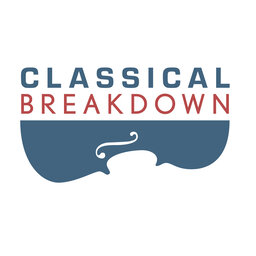Felix Mendelssohn: A prodigy, inventor, and visionary!
Join us to explore Felix Mendelssohn's life through 4 different aspects of life that separated him from nearly every other composer. John Banther and James Jacobs explore his life, what made him different, and enjoy a full performance of one of his iconic works too!
 Classical Breakdown
Classical Breakdown


